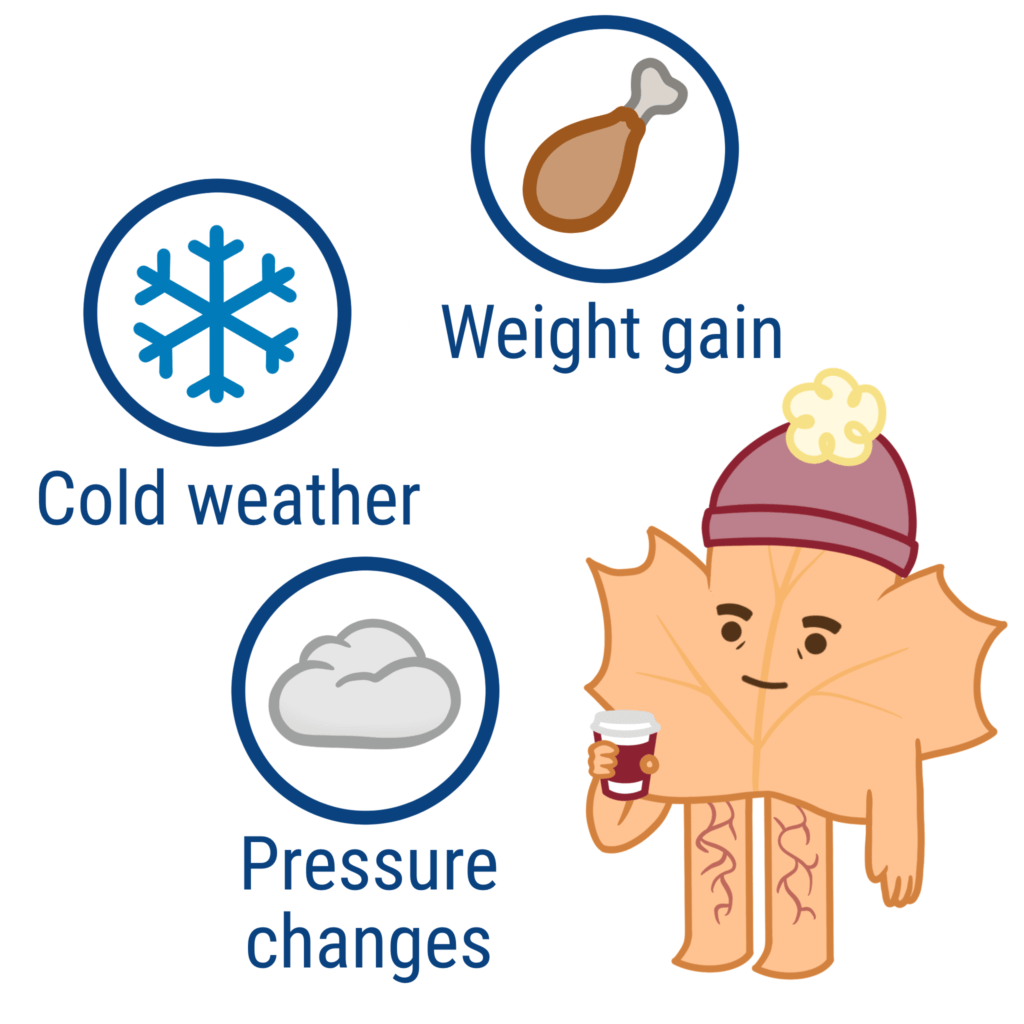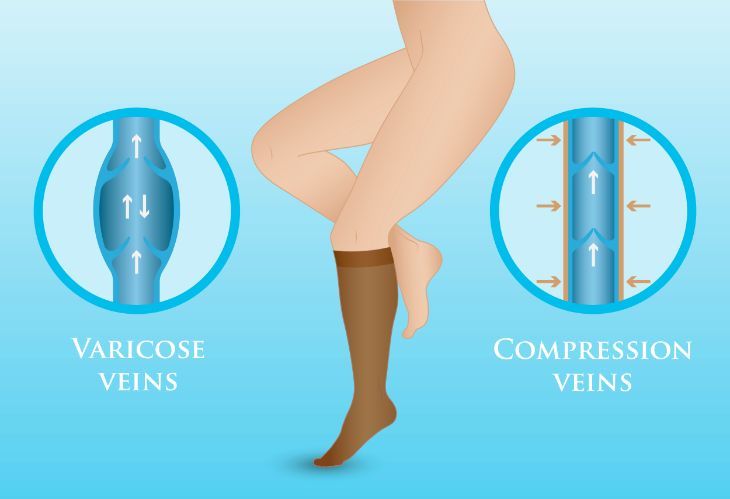Pregnancy is truly a wonderful phenomenon. But, it sure is not always a smooth ride. It’s a wholesome package with a lot of pleasantries and a miasma of physical, mental and emotional effects.
Being aware of them, however, helps cope with them when a condition arises. Mindfulness helps to avoid panic and tackle unexpected physical conditions precisely.
Did you know that varicose veins are a common, usually harmless part of pregnancy for some women? Let us shed light on this as many of you should be wondering why you get bluish-purple veins on your legs.
Why do we get varicose veins?
Varicose veins appear when the uterus applies pressure to the large vein (the inferior vena cava) that carries blood back to the heart from your feet and legs.
Many women first develop varicose veins – or find that they get worse – during pregnancy. You may have no discomfort or your legs feel heavy and achy. The skin around a varicose vein may also itch, throb, or feel like it’s burning. The symptoms tend to get worse at the end of the day, especially if you’ve been on your feet a lot.

Who is susceptible to varicose veins?
It is hereditary which means, if your mom or your grandmother had varicose veins, it is inevitable for you. You are also likely to get them if you are overweight, in successive pregnancy, carry twins or other multiples, and stand for long periods. If you are at a high altitude or cold places, your chances are high as well.

Are varicose veins in pregnancy ever serious?
The good news for some women is that varicose veins may improve or disappear after you give birth. But they’re generally harmless in the short term. Treatment, if needed, can usually be postponed until after you have your baby. However, very few people may develop blood clots near the surface of the skin which may feel hard and cord-like, and the area around it may become red, hot, tender, or painful. They can be treated with warm compresses and will usually subside in a few days or weeks. Occasionally the area surrounding a clot becomes infected. You may develop a fever or chills in that case, and you’ll need to be treated promptly with antibiotics.
If you have sudden, painful swelling in your ankle, leg and thigh, which hurt more when your foot is flexed or when you’re standing, and you notice a temperature rise, inform your health care provider immediately. It could mean you have deep vein thrombosis, a serious but rare complication of varicose veins.
What can I do about varicose veins when I'm pregnant?
There is no surefire remedy to get rid of it. But, there are some ways to reduce the pain and avoid making the veins worse.
Step 1: Consult your physician as soon as you notice varicose veins.
Step 2: Once it’s confirmed that your condition is harmless, practice the following remedies at home.
Keep your legs in an elevated position while resting.
Don’t sit or stand at a place for a long time; keep moving.
Exercise is key in preventing varicose veins — so take a walk or two each day, or do some other form of low-key, circulation-increasing exercises.
Sleep on your left side, to avoid compression of blood vessels and keep your circulation strong.
Avoid crossing your legs. Crossing your legs prevents blood from moving out of the veins, which increases the pressure within them.
Opt for comfortable footwear. Do not wear high heels.
Watch your weight. You are at risk of varicose veins when you have excessive weight gain.
- Adding foods that contain flavonoids may also help to shrink your varicose veins. Foods that contain flavonoids include: vegetables, including onions, bell peppers, spinach, and broccoli, citrus fruits and grapes, cherries, apples, and blueberries, cocoa and garlic.
- Put on compression stockings/ supportive pantyhose. They put pressure on your veins and increase the blood flow from your legs. Wear them before you get out of bed in the morning and keep them on all day to prevent blood from pooling in your legs. Make sure you take them off at night.

Apart from these there are studies which suggest certain plant extracts like horse chestnut extract, Aesculus hippocastanum L., may help o reduce leg pain, heaviness, and itching in people with chronic venous insufficiency. It is even available online.
If your varicose veins persist and become too uncomfortable to live with, or even if you’re just unhappy with how they look, postpartum, get your doctor’s help.
Also read : 10 Home remedies for swollen feet.

